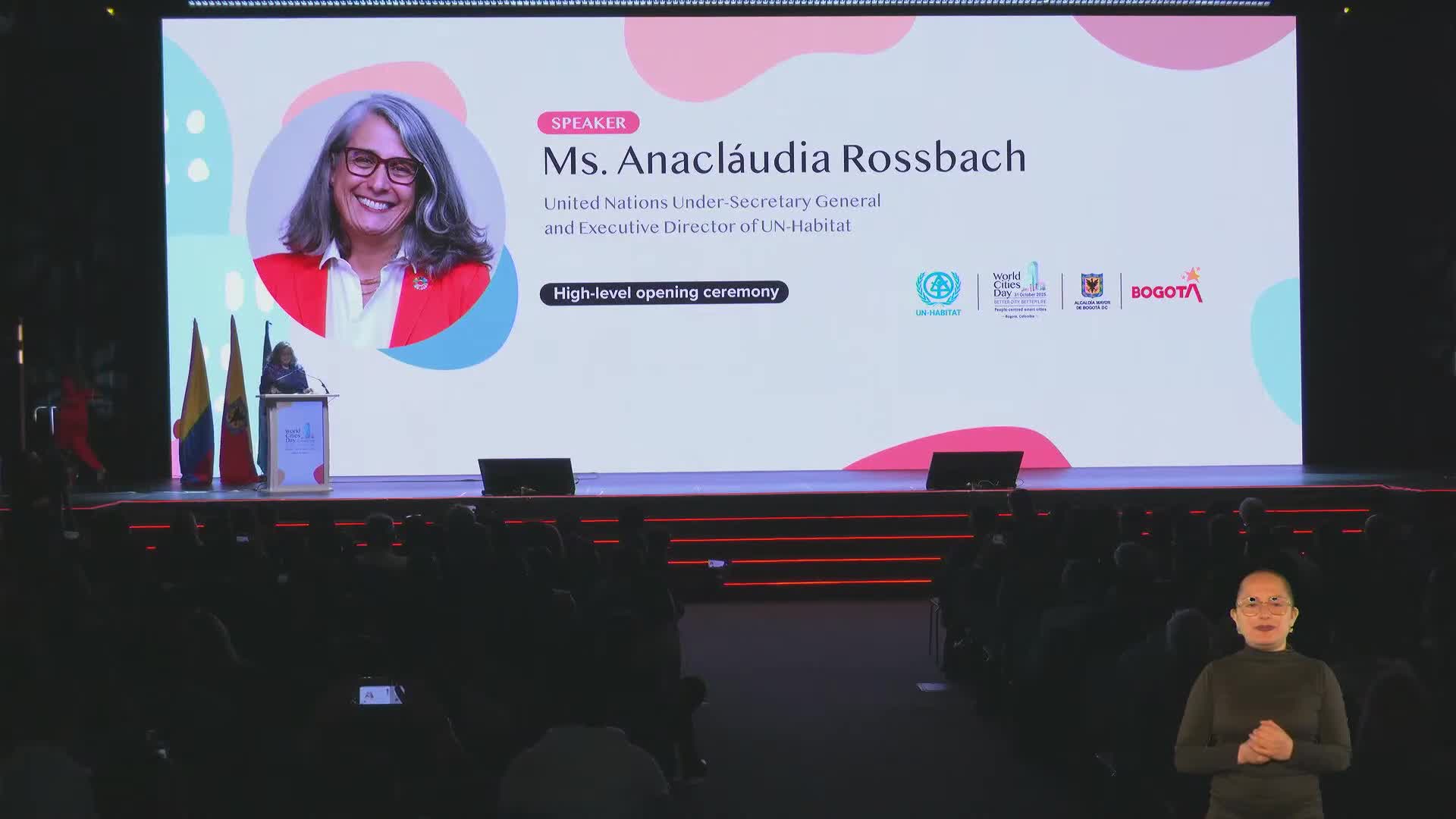UN, ONU-Habitat and ministers urge human-centered use of technology at World Cities Day
Get AI-powered insights, summaries, and transcripts
Subscribe
Summary
Senior UN and national officials at World Cities Day in Bogote1 emphasized that digital and smart-city tools must be people-centered and close social gaps.
Delegations and senior officials at the World Cities Day plenary delivered a consistent message: digital tools and artificial intelligence can strengthen urban planning and resilience, but must be deployed in ways that prioritize inclusion and people.
Antonio Guterres (message read by Ana Claudia Rosbach, 01:02:57) said in part: "En un mundo cada vez más digital, la tecnología está transformando la vida urbana... No obstante, la innovación debe cerrar las brechas, no ampliarlas." The message called for technology to serve the most vulnerable, naming women, youth, older people and people with disabilities as groups that must be included.
Ana Claudia Rosbach, executive director of ONU-Habitat, thanked the city of Bogote1 and highlighted regional engagement: she said more than 300 of the 400+ registered World Cities Day activities took place in Latin America and the Caribbean and emphasized tools such as the GEOL AI toolkit and Unitac digital components to support inclusive planning.
National ministers echoed the call for people-centered approaches. Elga Mareda Rivas Ardila, Colombia—s minister of housing, framed her remarks around a —he1bitat biodiverso,— saying "El agua nos ensef1a que la inteligencia no consiste en construir muros, sino en abrir caminos, en fluir, en reconocer la interdependencia." She stressed the need for community participation in resettlement and improvement projects and described an observatory and a package of decrees aimed at integrated neighborhood improvement.
Edna Elena Vega Rangel, Mexico—s secretary for agrarian, territorial and urban development, described Mexico—s "humanism" policy approach, urged stronger land-tenure regularization and interoperable information systems (modernized cadastres), and recounted recent extreme-rain events that require relocation and community-based responses.
Ni Hong, China—s minister of housing and rural development, outlined a technology-centered operations model that he described using the metaphors "urban brain" (a centralized data and command platform), "system nervous" (IoT-enabled municipal infrastructure), and integrated service networks to improve operations and citizen services.
Context and limits: These are high-level policy addresses at a global observance. Speakers described strategies, tools and national experiences; the statements report officials— positions and programmatic directions as presented onstage. Specific program costs, operational timelines or legally binding commitments were not uniformly provided in the plenary addresses and are reported here only as described by speakers.
Ending: Officials agreed on the need to combine data and digital tools with participation and equity to ensure that smart-city efforts benefit the most vulnerable and do not entrench exclusion.
